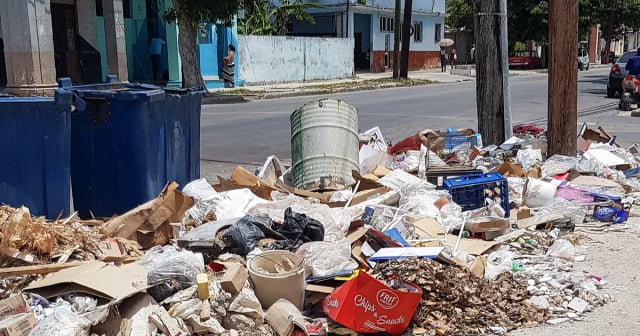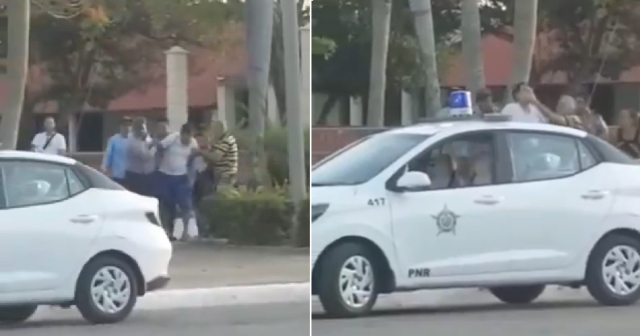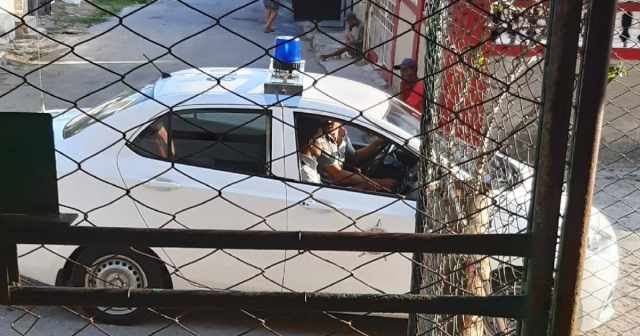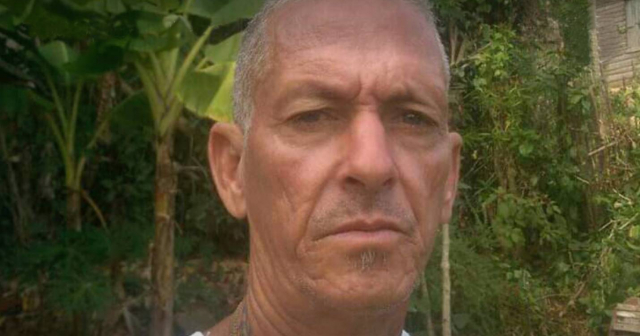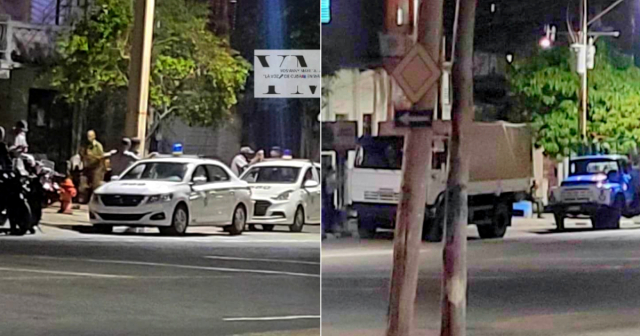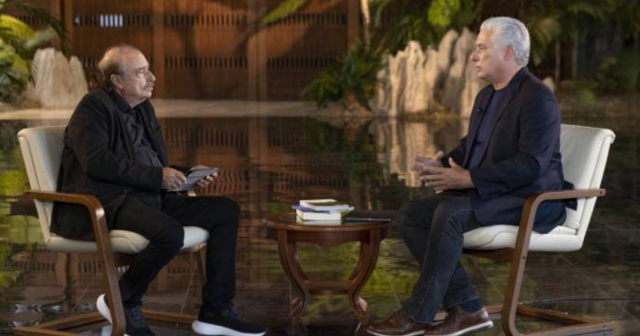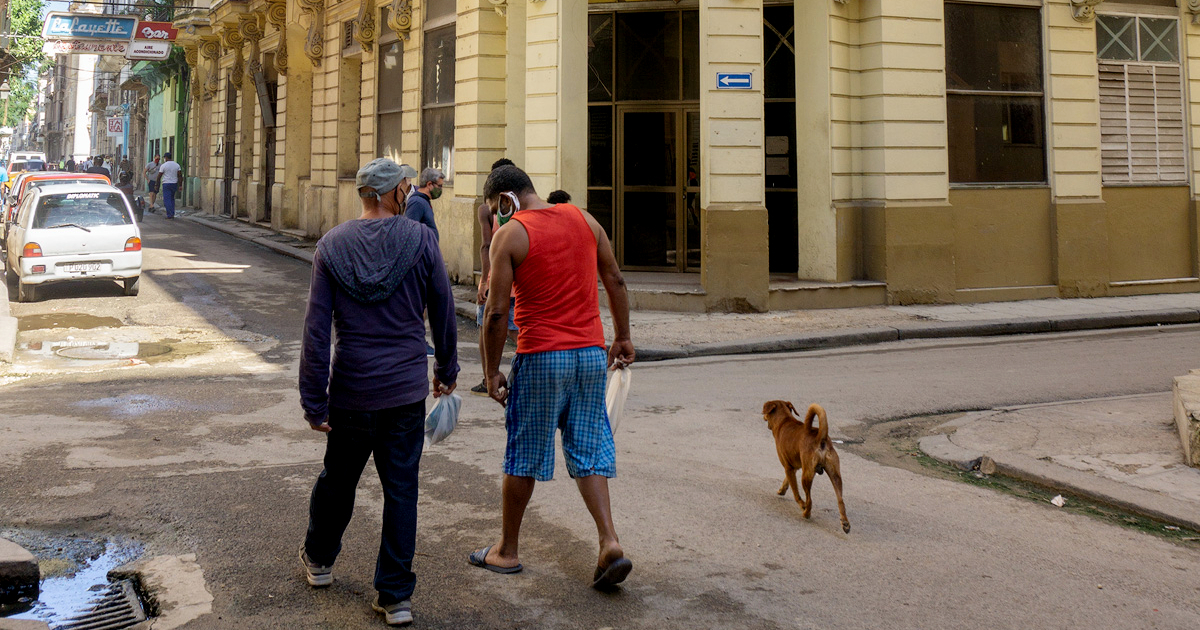
In a new approach aimed at maintaining a tight control over the population, the Cuban regime resorted to the crime of disobedience to threaten those citizens who, under the old penal code, were persecuted for "pre-delictive social dangerousness," using the current legal framework to justify punitive measures against those who do not align with the State's guidelines.
In an article published in the official organ of the Communist Party (the only legal one in Cuba), the head of the Organization, Planning, and Information Department of the People's Supreme Court, Yoel Izquierdo Castro, advocated for the prosecution of individuals without work or academic ties who ignore warnings from authorities regarding prevention and social care.
Quoting the Cuban Constitution, whose exclusive spirit is evident in a text that declares socialism as the only legal ideology, legitimizing the use of violence against those who speak out against this arbitrariness, Judge Izquierdo Castro defended the enforcement of laws derived from the regime's Magna Carta to carry out a repressive "iron-fist" policy.
The potential victims of the "white-collar repressor" approach would be citizens who are disconnected from studies and employment, and who do not have economic incomes considered "legitimate" by the Cuban regime.
According to Izquierdo Castro, "the existence of a significant number of individuals with physical and mental ability, disconnected from education and work, and lacking legitimate economic income to ensure their financial solvency, is one of the causes and conditions that foster manifestations of corruption, illegalities, and social indiscipline currently present in our society."
Currently, "in compliance with the missions established in Agreement 9151 of 2021 of the Council of Ministers," these citizens (formerly considered "antisocial elements") are the subject of "attention" by the Ministry of the Interior (MININT) and other authorities.
Through the Chief of Sector of the National Revolutionary Police, and with the participation of social and mass organizations, [the MININT] proposes, organizes, and implements prophylactic, preventive, legal, and operational measures in the territorial demarcation under its responsibility, involving individuals not engaged in work or studies, in order to favor the reduction of manifestations of corruption, illegalities, and social indiscipline.
Included in this category are "other harmful behaviors, such as engaging in prostitution and others incompatible with the climate of order, legality, and citizen peace that should prevail in Cuban society."
Therefore, the person who repeatedly disobeys or fails to comply with the measures that have been legally imposed by the competent authorities, or the warnings issued as a result of non-compliance with those adopted by the body or entity in charge of social prevention, incurs in the crime of disobedience provided for in Article 189, paragraph 3, of Law No. 151 of 2022, Penal Code," stated Izquierdo Castro.
The crime of disobedience contemplates "penalties of deprivation of liberty for six months to two years, or a fine of two hundred to five hundred units, or both," clarified the judge.
New mechanism for an old threat of the totalitarian regime
With the approval in May 2022 of the new Penal Code, the figure of "pre-delictive social dangerousness" disappeared, which had been looming since the Social Defense Code approved in 1936 and in force from 1938 to 1979, and constituted one of the most odious institutions in Cuban Criminal Law.
Presented in the periodic examinations of the UN Human Rights Council as "one of the main instruments of repression and imprisonment against young people and dissidents," the jurists serving the Cuban totalitarian regime maneuvered to make the figure of "predelinquent social dangerousness" disappear, but leaving its shadow.
In a shared opinion with CiberCuba, Cuban lawyer and journalist Arnaldo M. Fernández considered that, with the new Penal Code, the terms to define "dangerousness" are so open to interpretation that the legal norm is entirely subject to the discretion of the officials in charge of its application.
As shown by judicial practice, the antisocial behavior index became a wildcard to repress opponents and dissatisfied individuals, dissenters and human rights activists, against whom the totalitarian state could not target the charge of a particular crime,” Fernandez pointed out in his analysis.
As a conclusion, the expert pointed out that "the totalitarian state is inherently repressive. Therefore, repealing the concept of pre-criminal dangerousness in criminal law does not mean that the dictatorial political order sets aside the convenient notion of the antisocial subject," and warned about new maneuvers by the regime's judicial body to "keep alive the spirit of repression" that characterizes it.
This Monday, in Granma, Judge Yoel Izquierdo Castro acted as a spokesperson for the totalitarian communist regime to once again coerce the Cuban population that is not "integrated" and under control in its work and study structure, threatening them with the charge of "disobedience" if they do not heed the authorities' warnings.
According to the Cuban Repressors platform, Izquierdo Castro was one of the judges who sentenced 20 peaceful demonstrators from the 11J protests in Holguín to 5 to 20 years in prison, as documented in Preliminary Preparatory File No. 11 of 2021. Other participating judges were Alina de Fátima Santana Echerri, Ileana Julia Gómez Guerra, Bertha Doimeadiós Martínez, and Isnelda Pino Gutiérrez.
Why now?
Just a month ago, the Cuban regime reminded Cubans of the consequences they face if they decide to "disrespect public officials."
In a written piece also published in Granma, titled "Protection against disrespect towards public officials, authority, and their agents or assistants," Supreme Court magistrate Yanelis Ponce Téllez relied on various articles of the Cuban Constitution that regulate the behavior of citizens towards public officials to define the concept of "disrespect," highlighting the discretion with which authorities can interpret it.
To do this, he relied on Law No. 151 of 2022 (Penal Code Law), an instrument that further legitimizes the repression of the regime against opponents, journalists, independent media, and civil society on the island, but also to silence opposing voices that arise from anywhere in the country.
Days before its publication, the X account of the MININT warned that they were expecting protests in Cuba this summer, and blamed the government of the United States, and politicians from that country, for encouraging public disorder on the island amid the current crisis.
The United States is launching new initiatives to 'heat up' the streets during the summer, taking advantage of the country's complex situation, according to the latest interests of its intelligence agencies to generate attacks against Cuba, in what they call Operation 11.7.24," said the Minint on the social network X.
The serious socioeconomic crisis that the country is going through is beginning to show visible signs of discontent in Cuba, to which the regime is preparing to suppress possible protest demonstrations. Articles like those published in the official organ of the Communist Party of Cuba constitute a threatening warning to Cuban civil society.
What do you think?
COMMENTFiled under:

